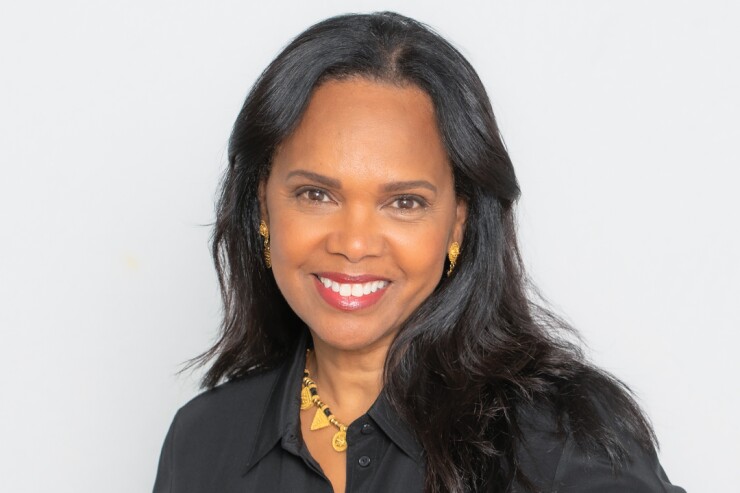
In March, when Visa, Mastercard and American Express reneged on their earlier agreement in September 2022 to use a merchant category code that would help to identify gun purchases, Priscilla Sims Brown, the CEO of Amalgamated Bank, took the companies to task.
"It feels like the march to financial services firms being able to help to eradicate illegal behavior occurring on our system has taken a bit of a pause," she said on CNBC's "Squawk Box." "But it's a long journey." Brown and Amalgamated were behind a yearslong effort to get the merchant category code created.
Tackling social justice issues is a typical day in the office for Brown. The $7.8 billion-asset bank, which bills itself as America's "socially responsible bank," is certified as a B Corp by B Labs, which means the bank meets their standards for environmental and social performance, transparency and structure.
In 2021, Amalgamated reorganized as a public benefit corporation and became the first publicly traded financial services company to be a public benefit corporation. The bank currently has $53.6 billion in custody services and investment assets under management.
Among the initiatives Brown launched this year was a public, third-party pay equity audit for all employees to ascertain and address pay gaps across racial and gender lines within the company. Amalgamated was also the first bank to raise their minimum wage to $20 for all full-time employees, according to its website.
The bank has also leaned more heavily into the clean energy space this year, launching a Climate Impact Debit Mastercard that replaces 80% of plastics used in card production with renewable resources such as corn. The bank has also made significant investments toward green initiatives such as launching the Working Power Project, which organizes capital to fund local sustainability initiatives in conjunction with Urban Ingenuity, a clean energy finance company. It has also made a $15 million dollar loan to Inclusive Prosperity Capital, a clean energy finance platform.
Brown is future focused, estimating that the green energy industry is worth almost $3 trillion of investment over the next 10 years. "This is a significant market opportunity, which we believe will grow through economic cycles, given the importance, urgency and the momentum to address climate change," she said on a Q2 earnings call.
At the core of these initiatives, Brown believes that banks are more than just a transactional middleman. "People don't seem to understand that so much comes through the banking system, good or bad," said Brown. "And that's both in deposits lending, credit cards and almost every product that we have, we are financing America's activity and growth."
As the 2024 election kicks into high gear, Brown said that the bank is "beginning to benefit from strong political deposit inflows as the presidential election cycle begins."
Each election cycle, political action committees park their cash at Amalgamated, making up a large portion of the bank's non-interest bearing direct deposits. PACs grew this deposit base by $157.7 million since the first quarter of the year, according to Brown.
With the banking crisis this spring now in the rearview mirror, Brown said things have returned to "the new normal environment of fierce competition for deposits, higher for longer interest rates, metropolitan office credit concerns and more."
"At Amalgamated, it's a very exciting time as our differentiated yet simple model uniquely positions us to win. I think what we've proven and what I'm really excited about … is that you can do good and do well," she said.





